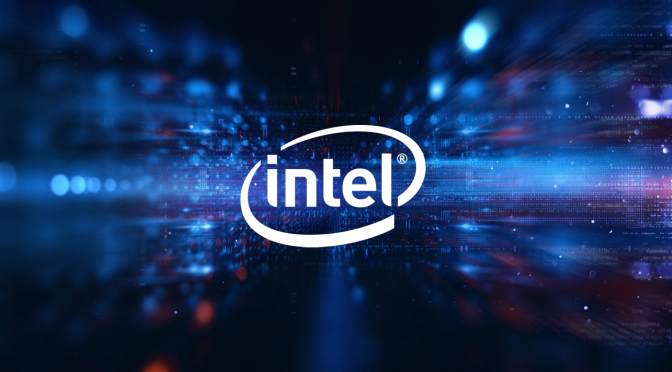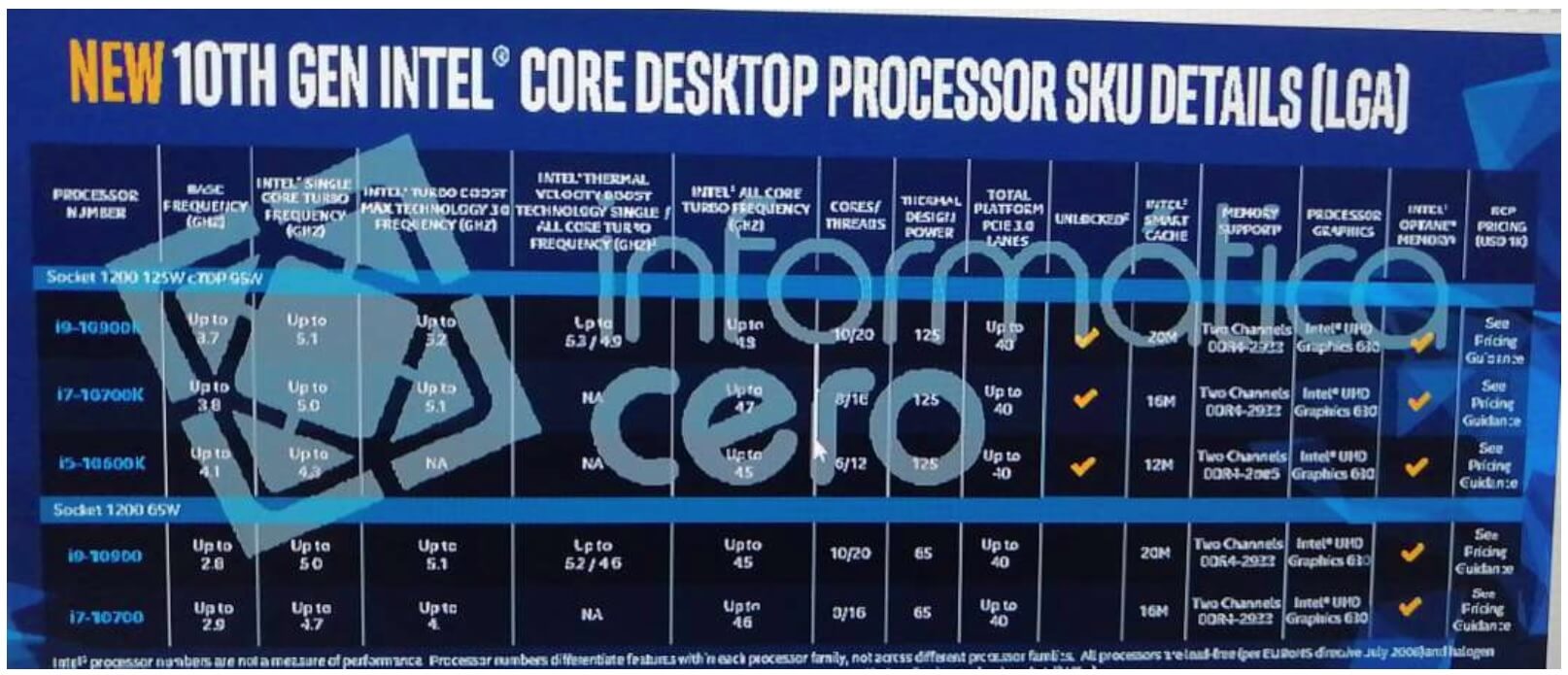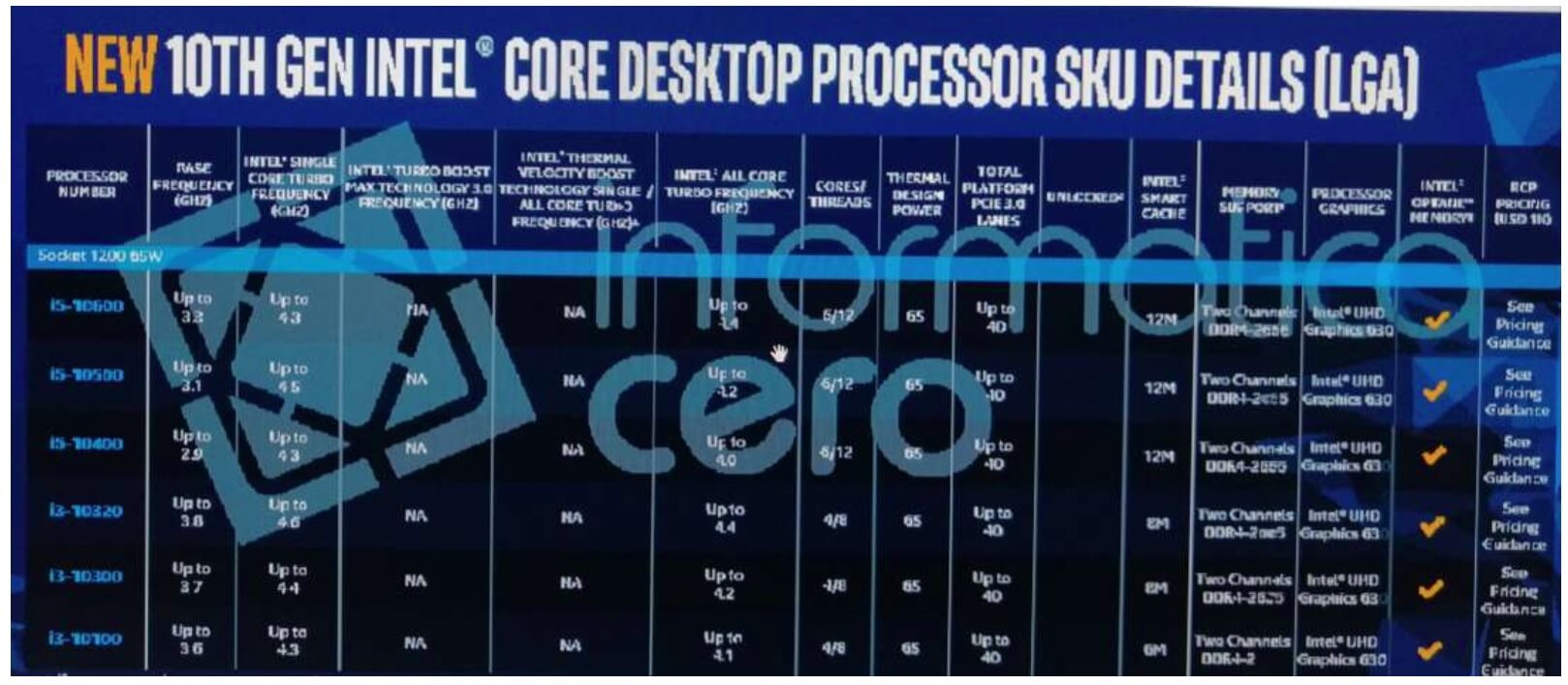It appears that the specifications for Intel’s 10th generation desktop CPUs have been leaked online. According to the leaked slides, Intel plans release 11 desktop CPUs and all of them will support Huper Threading.
The 10th generation Intel CPUs will offer increased performance (vs previous-gen) with up to 10 processor cores. They will also have media & display features for premium 4k content support. Furthermore, they will come with enhanced core & memory overclocking, as well as support for Intel Wifi 6 (GIG+).
These new CPUs will support Intel Optane Memory. They will also offer up to 30 PCH-H high speed I/O lanes with port flexibility, and up to 40 PCIE 3.0 lanes (16 CPU/up to 24 PCH). Moreover, they will have integrated USB 3.2 2×1 (10Gb/s) and Intel Rapid Store Technology (Intel RST) 17.X. They will also support C10 & S01X support for modern standby.
Intel plans to release two high-end Core i9 CPUs, as well as two Core i7 CPUs.
The Intel Core i9 10900K will have 10 cores and will support 20 threads. It will have a base clock of 3.7Ghz, a single-core turbo boost of 5.1Ghz and an all-core turbo boost of 4.8Ghz. The high-end CPU models will also come with Intel Thermal Velocity Boost, which will allow the Intel Core i9 10900K to hit 5.3Ghz on all cores.
Last but not least, these new CPUs will require brand new motherboards, the 400-series boards. These 10th generation desktop CPUs will be also using the LGA1200 chipset. Also note that the LGA 1200 chipset wll not support the older CPUs.
Kudos to Informatica Cero for sharing these slides, and to our reader Metal Messiah.

John is the founder and Editor in Chief at DSOGaming. He is a PC gaming fan and highly supports the modding and indie communities. Before creating DSOGaming, John worked on numerous gaming websites. While he is a die-hard PC gamer, his gaming roots can be found on consoles. John loved – and still does – the 16-bit consoles, and considers SNES to be one of the best consoles. Still, the PC platform won him over consoles. That was mainly due to 3DFX and its iconic dedicated 3D accelerator graphics card, Voodoo 2. John has also written a higher degree thesis on the “The Evolution of PC graphics cards.”
Contact: Email



